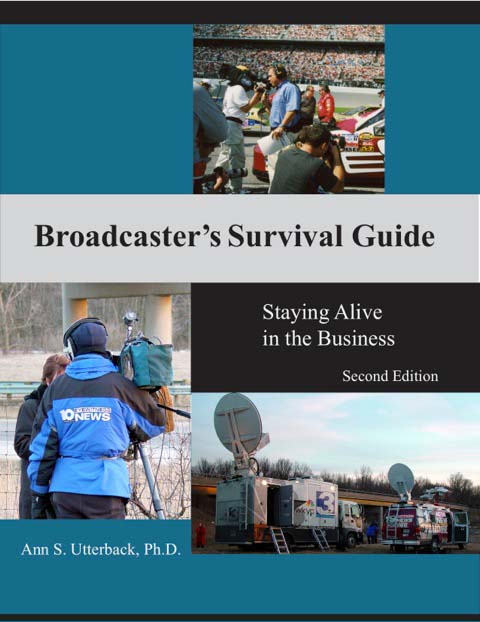|
VOCAL HEALTH Shhhhh ... Moments Of Silence Will Clear Your Mind - And Give Your Throat A Rest January 9, 2015  By Ann S. Utterback, Ph.D. Voice Specialist By Ann S. Utterback, Ph.D. Voice Specialist Author, Broadcaster's Survival Guide If youíre a voice over artist or a broadcaster, youíre probably wondering why a voice specialist would tell you to be silent. After all, you make your living by talking! But you might do better work if you observe silence in two important ways. The first way is to take a short time each day to sit in silence. Even as little as a couple of minutes can help clear your mind and calm your body so you can be more present and productive. CAN YOU BE QUIET? Sitting in silence without talking or using any electronic equipment isnít easy. A recent study at the University of Virginia found that 67% of men tested and 25% of women hated the idea of being silent for just 15 minutes. They said they would actually prefer a mild electric shock to having to sit alone in silence. This dislike for silence is not a new thing. Blaise Pascal, a French philosopher in the seventeenth century, said, "All human evil comes from this: our inability to sit still in a chair for half an hour.Ē So consider mastering the art of sitting in silence a few minutes each day. You donít have to chant "Om,Ē or become a mystic, just slow down and tune out once a day. THE SILENT TREATMENT The other valuable time to be silent is when you have a sore throat or vocal fatigue. Silence (vocal rest) is whatís called for in these instances. Vocal rest is especially important if you have to be on the air or tape a voice over. In the time that youíre not in front of the mic, practice silence. Let your damaged vocal tissue rest so it will heal faster. Donít force yourself to make sound when your vocal folds clearly donít want to. Try letting silence work for you. You may find that you are more productive and less likely to have vocal problems. ----------------------------------------------------  ABOUT ANN ABOUT ANNAnn
S. Utterback, Ph.D., is a voice specialist with more than 40 years
experience and has helped hundreds of people make the most of their
voices, working with broadcasters, voice over artists and podcasters
around the world. An author of eight books and over 50 articles on
voice, her Broadcaster's Survival Guide
e-book offers more tips on dealing with holiday stress, plus advice on
how to improve your voice over performance by making simple lifestyle
changes.
Web: http://OnlineVoiceCoaching.comClick for: Broadcaster's Survival Guide If youíre a voiceover artist or a broadcaster, youíre probably wondering why a voice specialist would tell you to be silent. After all, you make your living by talking! But in the coming year you might do better work if you observe silence in two important ways. The first way is to take a short time each day to sit in silence. Even as little as a couple of minutes can help clear your mind and calm your body so you can be more present and productive. Sitting in silence without talking or using any electronic equipment isnít easy. A recent study at the University of Virginia found that 67% of men tested and 25% of women hated the idea of being silent for just 15 minutes. They said they would actually prefer a mild electric shock to having to sit alone in silence. This dislike for silence is not a new thing. Blaise Pascal, a French philosopher in the seventeenth century, said, "All human evil comes from this: our inability to sit still in a chair for half an hour.Ē So consider mastering the art of sitting in silence a few minutes each day in 2015. You donít have to chant, "Om,Ē or become a mystic, just slow down and tune out once a day. The other valuable time to be silent in the coming year is if you have a sore throat or vocal fatigue. Silence (vocal rest) is whatís called for in these instances. To read more about the value of vocal rest, see my post, Restoring a Fatigued Voice. Vocal rest is especially important if you have to be on the air or tape a voiceover. In the time that youíre not in front of the mic, practice silence. Let your damaged vocal tissue rest so it will heal faster. Donít force yourself to make sound when your vocal folds clearly donít want to. I encourage you to try letting silence work for you in the coming year. You may find that you are more productive and less likely to have vocal problems. - See more at: http://onlinevoicecoaching.com/?page_id=1247&mc_cid=e85f6906fd&mc_eid=a06e28dbfb#sthash.GxuvBYX7.dpuf |
As of the NEW website launch, 03/22/2012



.png)






YES! You've hit the mark on this post. We're too distracted by too many shiny objects and doing it to ourselves. I agree we need to give our minds and vocal folds a rest with our sites on the long haul in voice over!
Best,
Bobbin Beam
Keep it up
"Doc" Ann U.
LOVE the suggestion to be silent for awhile! It is refreshing to put your mind in neutral for a few minutes!